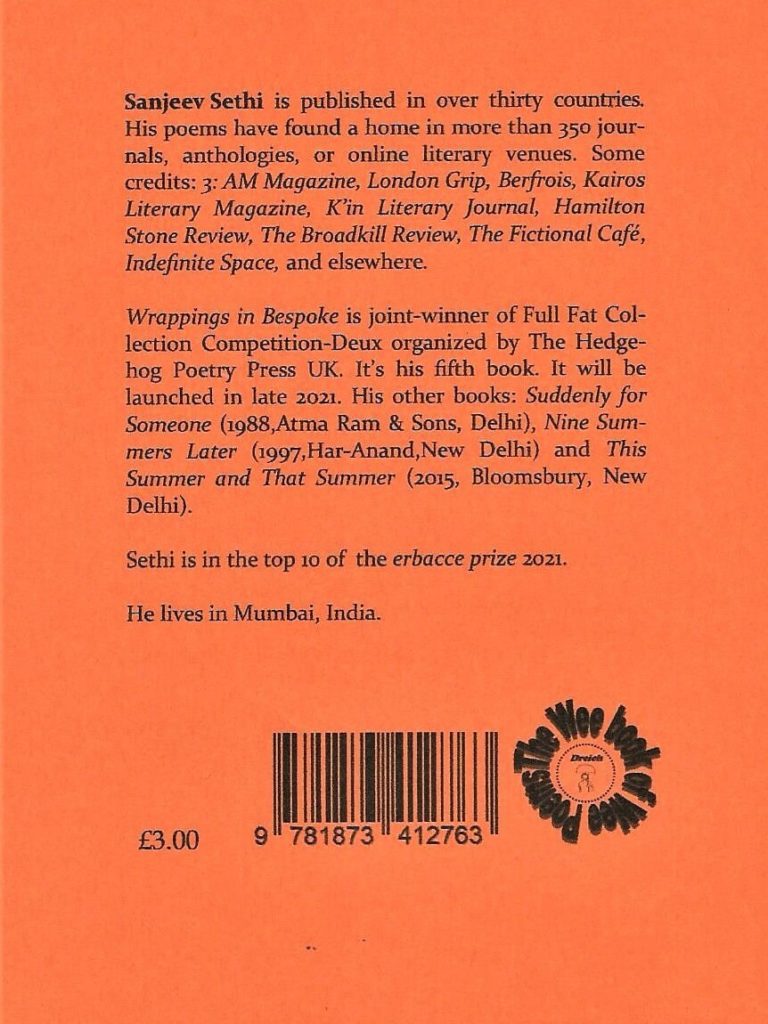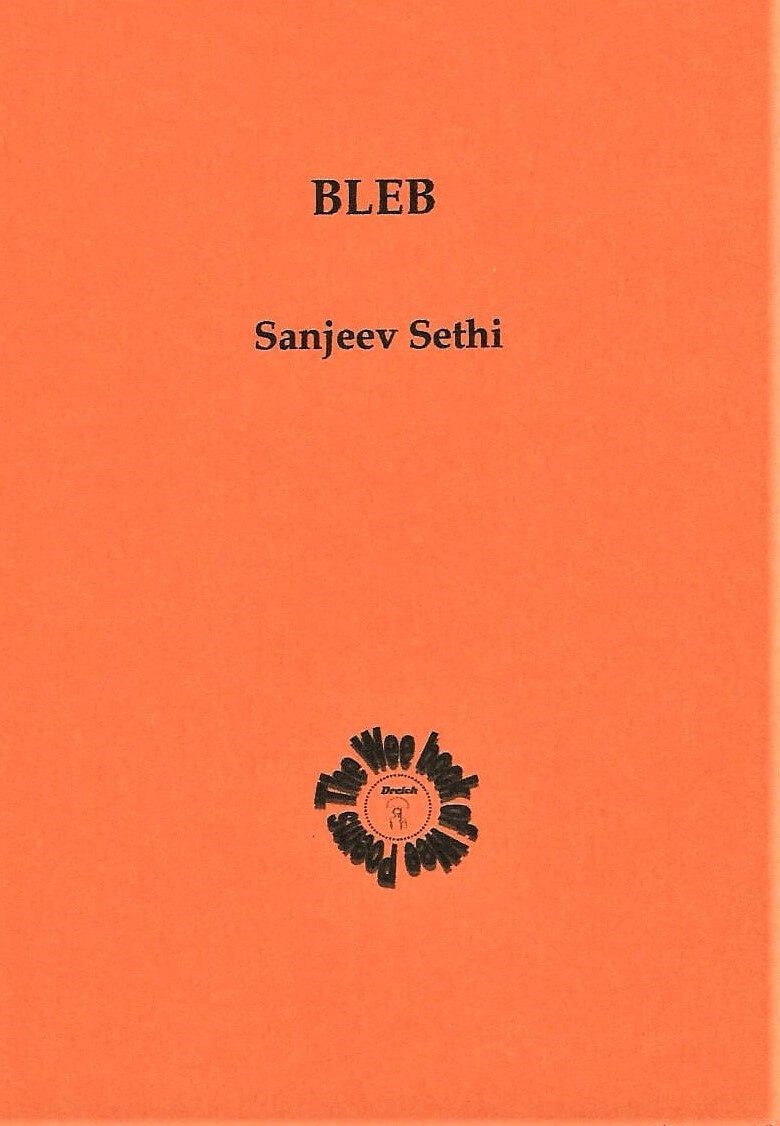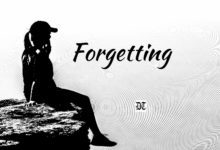Dr Sutanuka reviews Bleb, a collection of wee poems, by Sanjeev Sethi. An exclusive for Different Truths.
Title: Bleb
Author: Sanjeev Sethi
Page: 37
Sanjeev Sethi’s fourth collection of poetry Bleb – Wee Book is a haven and heaven of 31 poems.
In the Scottish language “wee” means “small”. Sanjeev Sethi’s fourth collection of poetry Bleb – Wee Book is a haven and heaven of 31 poems. He is published in over thirty countries. He has authored three books of poetry. Suddenly for Someone (1998), Nine Summers Later (1997), This Summer and that Summer (2015).
Sethi is the joint-winner of Full Fat Collection Competition-Deux organised by The Hedgehog Poetry Press UK. He is in the top 10 of the erbacce prize 2021. The basic premise is that all the poems in Bleb are wee poems. In their editorial assessment it means a maximum of ten lines excluding the title.
Writings in black and white usually are so unidimensional and predictable.
Writings in black and white usually are so unidimensional and predictable. And then the readers quickly guess how the poems are going to affect them. It’s fun for the readers — if one can predict what the poet will write next. It makes an engaging wait.
Precision is Perfection
Sethi unnerves us for each of these small poems. It is big enough to keep us flabbergasted for days. Here precision is perfection. The poems appear like dialogues or cogitations interrupted by dramatic moments. Very seldom readers get that perfect balance in a poetry collection.
He fills in the fissures and cements the cracks of life.
The poet enquires into different facets of life – inequality, diurnal rituals, and love replete with separation, trauma, relationship, and pain. He fills in the fissures and cements the cracks of life.
The opening poem Medic, “As casual as strolling on a graveled pathway/in a close-by parkland, words cycle towards/me on my inner track where ideas lap dance/with a tumescent dash/ The first draft is born” (7) is the key to unlock this slim volume.
Word is a World
Each word is a world. The poet, like a typical medic on duty, is holding his “first baby” his “first draft” in his hands and patiently waits to nurture it to the core. “A poem isn’t a fable or folktale. / Its task is to temper with images and ideas that create/ one’s fantasy or factuality: like those oeillades” (Offing 8).
Sethi is a wordsmith. He chisels his words.
Sethi is a wordsmith. He chisels his words. And his chiseled words make him a class apart. Memento Mori (9) reminds us that everyone’s purpose in life, whether we call it moksha or anything else, is liberation and one wants to break all the shackles and enter the unknown.
In Musings (10) Sethi offers his readers a specific philosophy or view of life —weltanschauung. We pay obeisance to ordinariness and extol every day in our approximations of reality. The readers are left with no clue as to whether they are given something in return in form of compensation.
Truth of Opinions
The titular poem, Bleb (11) investigates the truth of opinions. As we know, ‘bleb’ means bubble or blister. So, it is interpreted as temporal. Everything in life is transitory. It is better to treat the blisters as such. Human nature knows no boundaries. And at times life is reduced to a vesicle.
Sometimes in the garb of a ‘brassard’ one tries to figure out that which is difficult or impossible to estimate or assess in the process one gets trapped in a conflagration.
Sethi prompts us of the Masterplan — “Sans levee one superintends freshets. / Growing up is gratuity without a John Hancock” (12) in life rational indices become irrelevant as firm, familiar specifics are eclipsed “with run-down moiety, new/moons rise”. This continuum of life confounds the God-made “masterplan” and this seems to be central to Sethi’s wandering search. Sometimes in the garb of a ‘brassard’ one tries to figure out that which is difficult or impossible to estimate or assess in the process one gets trapped in a conflagration.
Beyond their sorrowful song is a missive of life, hope, renewal, and peace.
The readers singe and then in a moment of epiphany realise that “guilt is the grief” (Imponderables14). The metaphoric use of “mourning doves” in Mulct (15) laces optimism with spirituality. Beyond their sorrowful song is a missive of life, hope, renewal, and peace.

Daily Rigmarole
The daily rigmarole, the niggling little things wiseacres the poet. So, he waits for the mellowed moment ‘when the answer” “will fall” on his “lap” (Fair Play16). It is also about tweaking and adjusting and evolving as one goes along to find the right balance.
In separation and suffering (Indicant 19) the poet recognises, acknowledges, and honours the pain. In Bearings aesthetic semblance of memory is grasped but it is grasped through aesthetic experience — “Molasses mingle with soupcon of memory” and the poet tries to gauge the “riot within” (Bearings 23).
The readers compulsively play out a hypothetical banter in the head there is an al dente analysis…
Memory hangs on a clothesline in Confabulations, so representation through memory narratives is central to the understanding of Sethi’s poetic oeuvre. The readers compulsively play out a hypothetical banter in the head there is an al dente analysis, a distressing comeback, a cathartic discourse.
Everyday Life
It serves as a kind of small orb of everyday life, which is no doubt frustrating. In exchange, the poet’s “verbs are smitten with nouns” (The Exchange 27). “The college buddy” “father of two” (Heart-to-Heart 32) perhaps teaches us that we all have different sides to us. Different circumstances elevate one emotion – the reality is perhaps grey.
In each of these 31 poems, Sethi kneads and mixes all the threads of life.
In each of these 31 poems, Sethi kneads and mixes all the threads of life. In Bleb, binaries coexist and colours are present and absent simultaneously. He writes: “The viciousness of wind is/ flinging its bullets at me. I’m not inclined/ to read them” (Happiness 36). “Empirical drills/equip me to decipher:/default settings source/participants to my past. /The way to run/ is with raw force: / flow with fresh urgencies” (Newness 37).
Capricious and Carefree
The closure is like thistledown caught in the wind. Capricious and carefree ushering in new faith and life. Bleb makes one look at all subsequent works of poetry differently. Readers prepare to be shaken to the core with this one.
Complicated and complex, enthralling and engaging poised and polished, Bleb: Wee Poems will contribute to the pages of poetic history.
Visuals sourced by the reviewer






 By
By

 By
By
 By
By